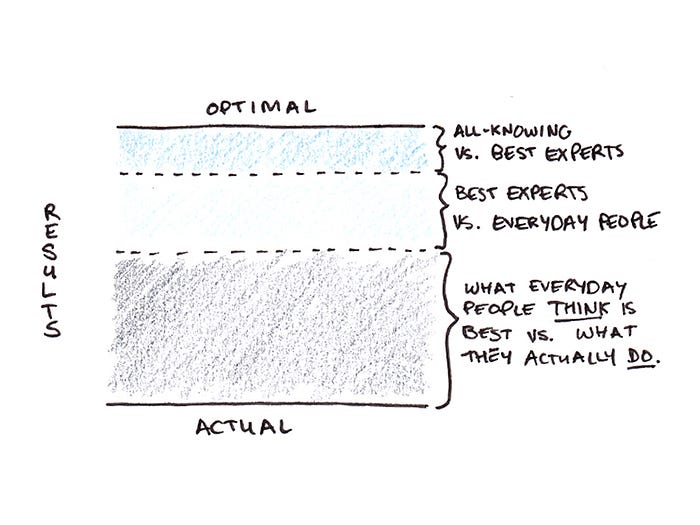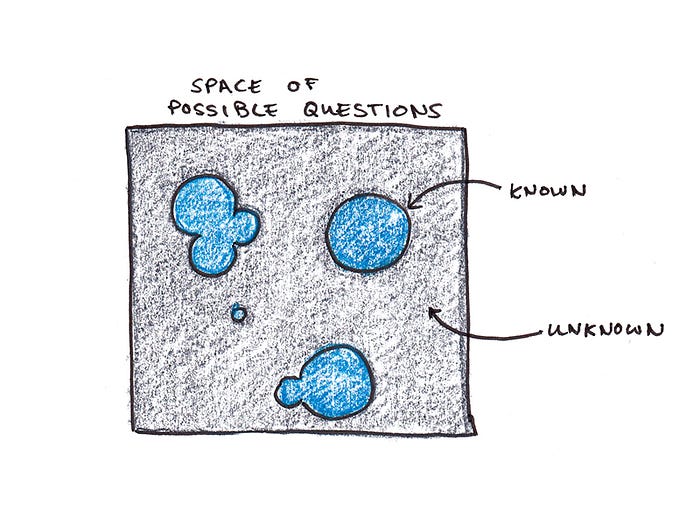Member-only story
The Three Gaps In Knowledge That Define The Quality Of Our Lives
As I prepare for my upcoming foundations project, I’ve been doing a lot of reading. One of the best books I read on nutrition was Walter Willett’s Eat, Drink and Be Healthy.
Willett is one of the world’s most cited nutritionists, and the book comes with a seal of approval from Harvard’s T.H. Chan School of Public Health. In short, pseudoscientific crash diet book, this is not.
But as anyone who even casually follows nutritional advice knows … the field is kind of a mess. Popular recommendations for diet seem as varied as they are extreme. Some people insist a strict vegan diet is the only way to be healthy. Others encourage us to subsist entirely on butter and red meat.
Even within academia, nutritional research is often criticized as being low-quality and underpowered, thus providing fodder for countless clickbait news pieces about how chocolate — or blueberries — or kimchi — is the secret elixir for life.
As I read Willett’s book (he advocates for basically a Mediterranean diet, by the way), I started thinking about the three gaps in knowledge that define the quality of our lives.

The First Gap: Omniscience and Science
The first gap is between what a God’s-eye view of the question would take as the answer and the current scientific understanding. In other words, if all the difficulties and methodological limitations inherent to dietary research could be fixed, and we had a billion researchers studying humanity for a thousand years, what advice would they converge on?

Of course, the omniscient perspective is inherently unknowable. But we sometimes get clues when scientists flip their advice when new evidence comes in. If the cutting edge of expertise changes its paradigms frequently, it’s a sign that there’s a large gap between what we know now and what we could potentially know someday.
Despite the much-ballyhooed flip-flopping of nutritional advice, Willett’s book led me to believe the issue is due more to stumbles in science communication than…

